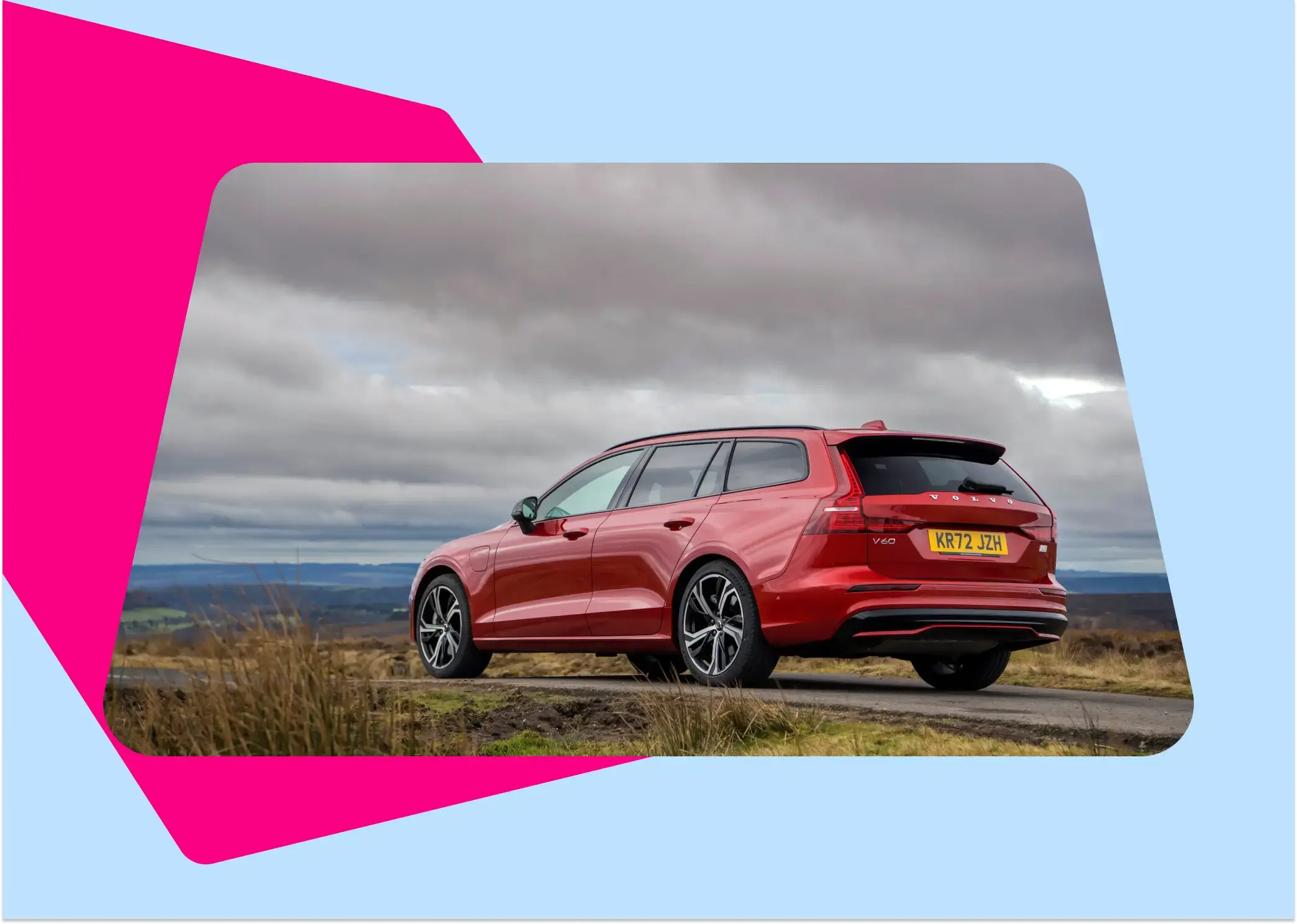- Carmoola
- Blog
- Cars and Gadgets
- What are the best small estate cars?
- 🗞 Cars and Gadgets
- Last updated: Jan 3, 2025
- 6 Min Read
What are the best small estate cars?
Written by

Verified by


See how much you can borrow in 60 seconds
| Representative Example | |
|---|---|
| Loan amount | £10,000 |
| Interest rate | 13.9% APR |
| 54 payments of | £246 |
| Total cost of credit | £3,284 |
| Option to purchase fee | £1 |
| Total payable | £13,285 |
When it comes to finding the perfect balance between practicality, comfort and fuel efficiency, small estate cars strike the ideal middle ground. At least, they do in theory – could they be what you’re looking for in your next car? A small estate car could appeal if you want extra boot space for the weekly shop or occasional trips away, while avoiding large, difficult-to-park, unwieldy machines that drink through fuel like nobody’s business.
Whatever your reasoning, let us tell you about some of our favourite small estate cars, and why we like them so much.
Best overall small estate car: Skoda Octavia Estate
Small doesn’t necessarily mean… well, small. The Skoda Octavia competes with cars like the Volkswagen Golf and the Ford Focus, but it’s far more spacious inside than just about any competitor. A massive 640-litre boot, expandable to 1700 litres with the back seats down, can cope with just about anything you need to haul without needing a van. There’s loads of rear legroom and loads of clever features to help make life easier – there’s even an umbrella in case it rains. It’s not too pricey either when compared to its rivals. Sure, some of them are more fun to drive, and the Skoda’s touchscreen controls are on the fiddly side, but when it comes to overall small estate prowess, the Octavia Estate rules.
Best hybrid small estate car: Toyota Corolla Touring Sports
If fuel efficiency and reliability are top of your list of priorities, then the estate version of the Toyota Corolla ticks all the boxes. Its full-hybrid powertrain promises up to 62.8mpg and it can run on electric power alone at low speeds, so it’s particularly frugal on fuel around town. A large 596-litre boot means lots of load space, so it’s practical too, and Toyota’s reputation for reliability is second to none. It’s another car with a mildly fiddly infotainment system, but the amount of money you’ll save on petrol is surely enough to make you overlook this minor detail. Surely.

Best electric small estate car: MG5 EV
If we’re honest, it’s still fairly slim picking when it comes to all-electric small estate cars. But luckily, the MG5 – one of very few such engine-free options – is actually a cracking deal. It’s very affordable and practical, and with a 250-mile range on a full battery, it’ll cope with drives around town or further afield. At 479 litres, its boot isn’t as vast as some other cars of this type, but it should be plenty for most family needs. It’s very well specced with features, too, and your general running costs should dramatically undercut most of the competition, which will help you overlook the less-than-premium feel inside. It’s a small price to pay, in several senses of the word.

Best small estate car for comfort: Volvo V60
The Volvo V60 blends family-friendly practicality with Scandinavian design, and we don’t mean that it comes flat-packed in a box. Instead, it’s got a minimalistic design and premium materials, and it’s supremely comfortable, with supportive seats and a smooth, unruffled ride quality, which makes it brilliant on long journeys. The 529-litre boot isn’t the biggest in the class, but it’s well shaped and easy to load. You’ll pay a bit more than some rivals for the V60, but that extra level of pampering makes it worthwhile.

Best value small estate car: Kia Ceed Sportswagon
A big 625-litre boot. A load of standard equipment across all versions. Plenty of space for even large passengers. An industry-leading seven-year warranty from new. Proven reliability. An admittedly plain interior compared to more premium rivals (but still very usable and hassle-free), and WITHOUT a premium price. That’s the Kia Ceed Sportswagon, and it’s got a range of efficient engine options too. We rest our case.

How we chose these cars
When compiling this list of recommended cars, we considered several factors:
- Size: The clue is in the article title, but a great small estate car should be small enough for easy manoeuvrability, but spacious enough for passengers and cargo.
- Fuel efficiency: We looked at different options for traditional engines, hybrid models and electric cars to suit different driving requirements.
- Boot space: A focus on practicality with generous storage capabilities.
- Reliability: Cars with strong reputations for durability and peace of mind.
- Comfort and features: Interiors designs for comfort for all the family, with modern infotainment and safety tech.
What other body types could I consider?
If a small estate car doesn’t quite meet your needs, here are a few alternatives:
- Hatchbacks: Slightly smaller than estates but often more affordable, hatchbacks, such as the Volkswagen Golf, offer practicality without the extended rear end.
- Small SUVs. Models like the Renault Captur will give you a higher driving position and a versatile interior space, with features like sliding rear seats and flexible boot configurations.
- Crossovers: Blending hatchback and SUV elements, crossovers like the Toyota Yaris Cross can offer extra style while still being practical in a compact package.
FAQs about small estate cars
What is the best small estate car for a family?
What is the most affordable small estate car?
How do I choose the right small estate car for my needs?
Are estate cars worth buying?
Are estate cars more expensive to insure?
See how much you can borrow in 60 seconds
| Representative Example | |
|---|---|
| Loan amount | £10,000 |
| Interest rate | 13.9% APR |
| 54 payments of | £246 |
| Total cost of credit | £3,284 |
| Option to purchase fee | £1 |
| Total payable | £13,285 |
Related articles
What to do if your car on finance is broken beyond repair
Your car’s dead, the repair bill’s sky-high, or insurance has called it a write-off. But the finance payments? Still ticking...
What Are the Top 5 Used Car Websites in the UK?
Thanks to the internet, searching for a used car in the UK is easier than ever before. You can simply head online, visit a used...
What Is GMFV in PCP Car Finance? Guaranteed Minimum Future Value Explained
GMFV, or Guaranteed Minimum Future Value, is the amount your lender estimates your car will be worth at the end of your PCP...

.webp?width=832&height=592&name=customer-support%20(1).webp)










.webp?width=400&height=285&name=online-shoppers-with-dog%20(1).webp)


.jpg?width=500&height=356&name=Vintage%20car%20going%20to%20an%20old%20town-1%20(1).jpg)






